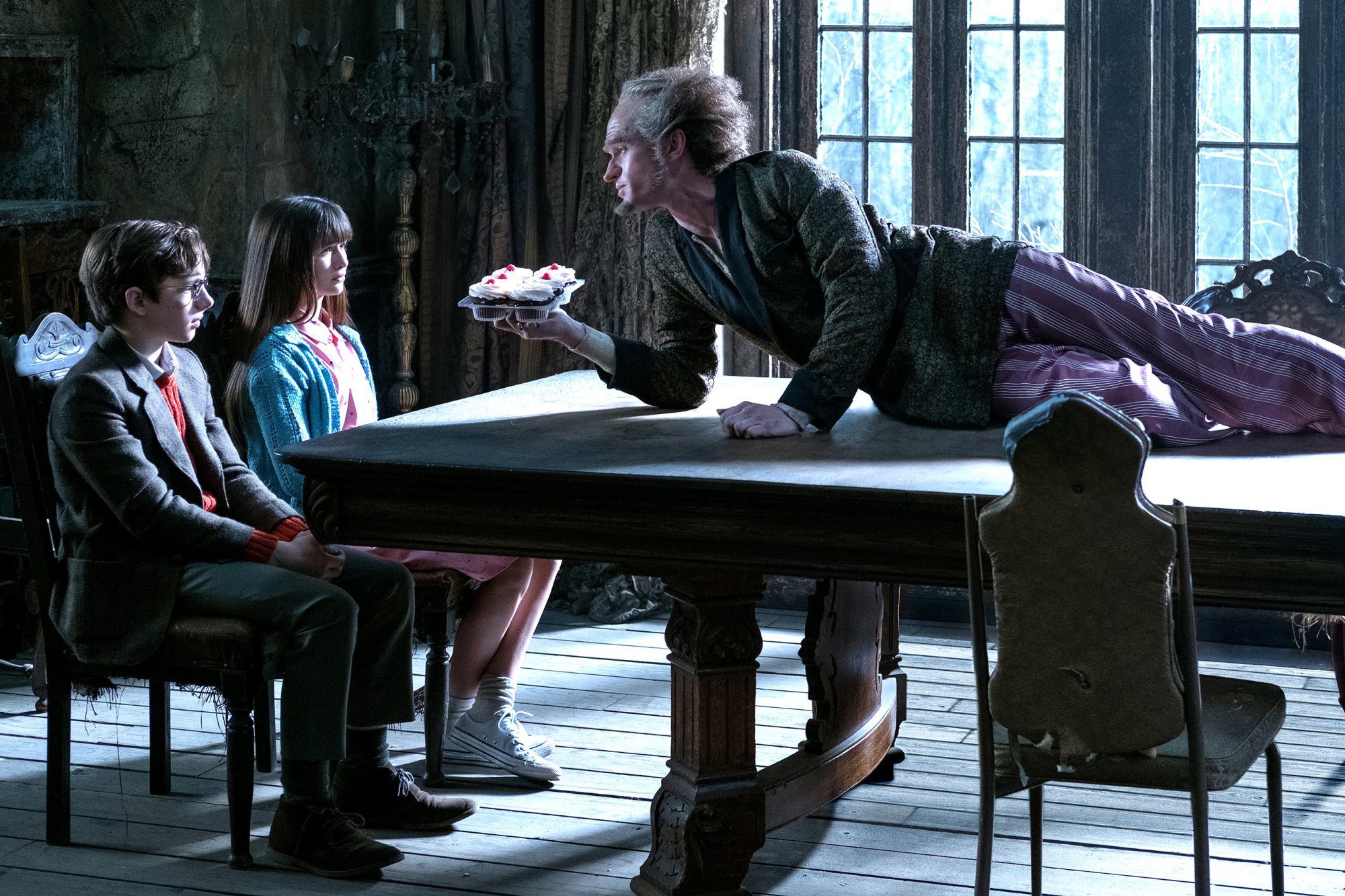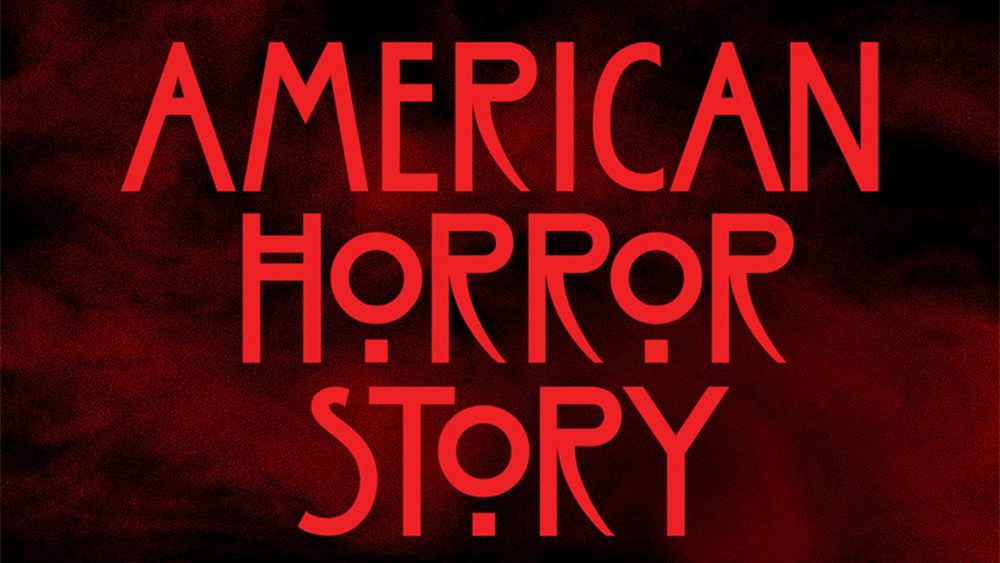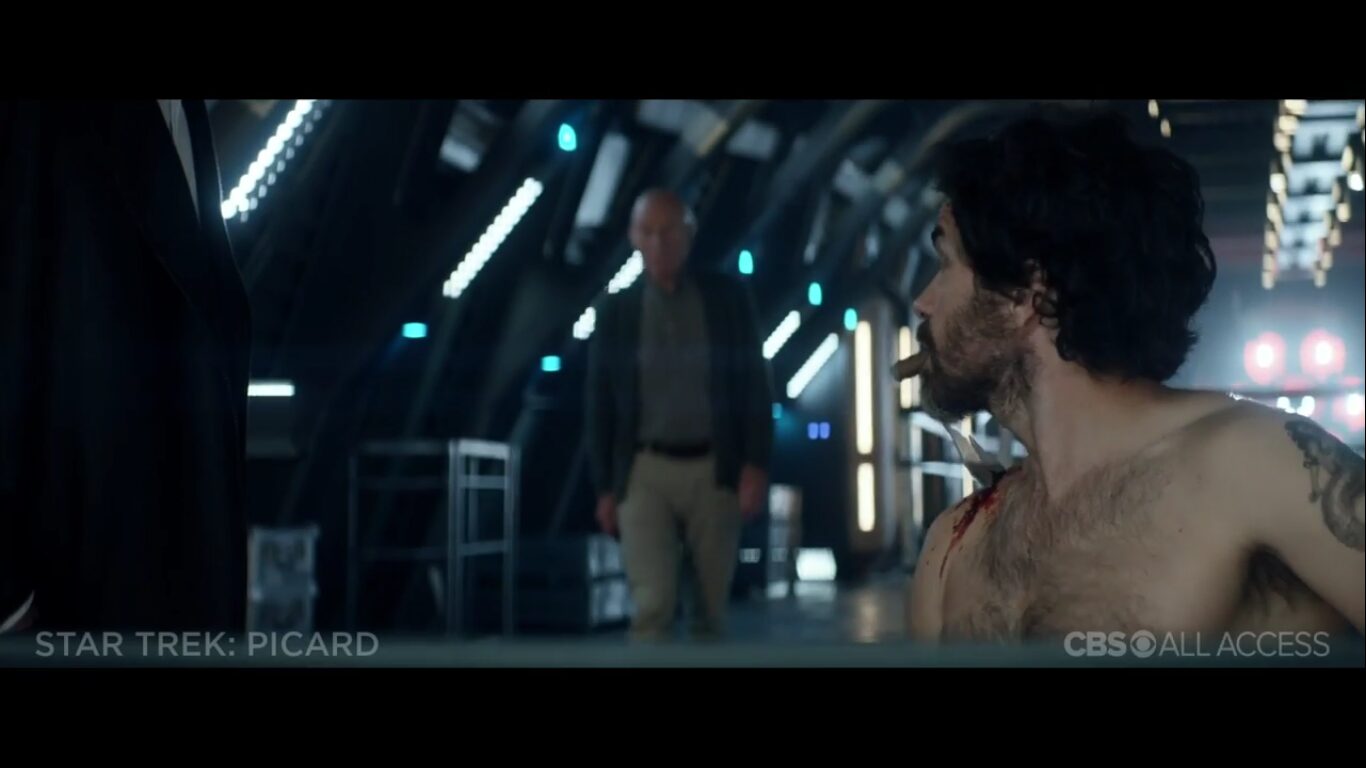“The alleged entertainment you are watching is extremely unpleasant.”
“The Bad Beginning: Part Two” is a more successful episode of A Series of Unfortunate Events than was the premiere, if only because it didn’t need to spend the same amount of time world-building and was able to jump right in and tell a more complete, and therefore more satisfying, story. The show moves at a nice clip, which allows the viewer to move past some of the quirkier details of the show which could potentially induce eye rolls (characters still define words for the Baudelaires, though, which I find more and more tiresome).
Barry Sonnenfeld’s direction is more engaging this time around as well. “Part Two” begins with a flashback, showing us just how Olaf came to be regarded as the Baudelaires’ closest relative. He pays a visit – in disguise, naturally, which he cobbles together in a fun shot that shows him swiping clothes off of passersby – to Mr. Poe, who works in an office so sleek and monochrome it could be mistaken for a set from a Terry Gilliam film. It’s quickly becoming one of the rules of Unfortunate Events that the best scenes will always have people taking Olaf at face value, and this is no exception, as he hoarsely introduces himself as “Yessica Haircut,” a name that only gets funnier with repetition. (This flashback also introduces one of my new favorite characters, Mr. Poe’s seemingly beleaguered secretary Jacqueline, played by Sara Canning, who turns out to be far more resourceful, intuitive, and cunning than anyone would have given her credit for.)
“Part Two” is a good showcase for Violet and Klaus as well (I can still take or leave Sunny; as of now she’s not doing much of anything for me). One of the unexpected pleasures of Unfortunate Events is the intelligence of its protagonists matched with the short-sightedness of its antagonist; the Baudelaires know precisely what Olaf is up to, and he makes no secret of it either. Here Olaf’s plan is to make Violet star in a play called The Marvelous Marriage, as a woman who ultimately marries Olaf (playing, in his words, “a very handsome and good-looking man”).
The plan isn’t so much insidious as nearly foolproof; Olaf, as Violet’s guardian, can give her permission to marry before she’s eighteen, even if it’s to him. The show doesn’t shy away from the incestuous and statutory implications of this scenario; Olaf is not only significantly older than Violet, he’s also her cousin to some degree of removal (his insistence that she and Klaus call him “Father” is never less than icky either). In the episode’s creepiest shot, Olaf sneers “I’ll touch whatever I want” at Klaus, and puts his hand on Violet’s shoulder. Even if Olaf’s plan doesn’t ultimately work, it shows the length to which Olaf will go to get his hands on the Baudelaires’ fortune.
There’s no real ambiguity to Olaf, at least not yet, and that helps the show a lot. If he didn’t feel like a real threat, Unfortunate Events would just be a show about quirky kids thwarting an arrogant madman, and that would get old fast. But not only does Olaf hang Sunny from the tower in a birdcage (replete with rope and duct tape, in a nice sight gag), he actually gives the order to let her fall to her death. (Violet, by now, has tried to rescue Sunny with a homemade grappling hook, in a fun sequence; Sunny later wins her freedom by beating Olaf’s henchman at poker, in a sequence that tries a little too hard, like most Sunny sequences, I’m finding.) With such malevolence established, the Baudelaires’ escape to their relative Dr. Montgomery feels like a genuine relief – although, with six more episodes in the season, the relief will be short-lived, I’m sure.
That, to me, is what works so well about A Series of Unfortunate Events. Olaf is a surprisingly effective villain and also the funniest character on the show; that, plus the appearance of Lemony Snicket, gives the show its own firmly established identity.
It’s still not without its problems, though. The insistence on running jokes into the ground is doing the show no favors (Mr. Poe’s coughing seems like a lot of setup with no possible satisfying payoff), and the score at times threatens to undercut scenes that should be more tense or serious. Justice Strauss stands right on the edge of being too quirky, but Joan Cusack’s sweet performance makes her the show’s most likeable character. More than all that, though, I wonder where the show can go from here. I mean, I know exactly where the show will go from here, to a two-episode adaptation of Snicket’s second book, The Reptile Room. But I worry that a show like this can get repetitive, and that condensing four books into a single season – short though they may be – might ask too much of the viewer. But if “The Bad Beginning” parts one and two taught me anything, it’s that the writing and performances are engaging enough to keep me coming back. And hell, I just want to see more of Jacqueline.
A Few Thoughts
- More Olaf quotes! “You will suddenly find yourself in the enviable position of being a struggling actress in middle age.” “That brave and clever boy with the horrible glasses has uncovered our dastardly plot.” “Rubber baby baby baby.” “What handsome adventures I have had!”
- And one from Mr. Poe: “Seven. Seven. Seven. Seven. Anything but seven.”
- I am in love with the theme song to this show. Hearing Harris sing just reminds me of Dr. Horrible’s Sing-Along Blog.
4/5





